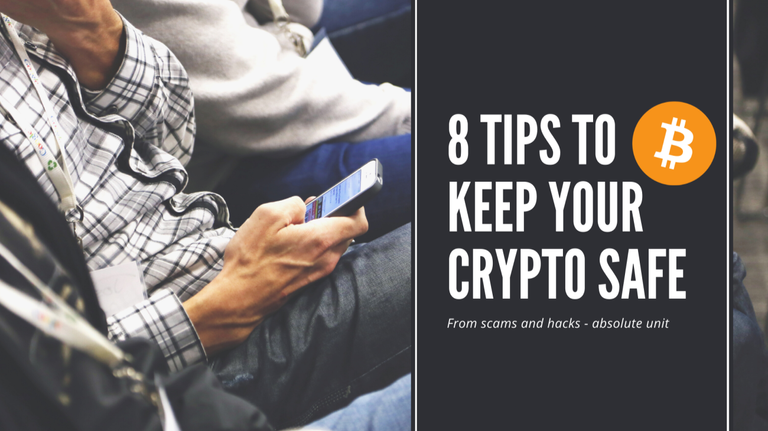
Crypto is and always has been infested with scams and hacks. According to the FTC, from 10/20-4/21, more than $80 million was reported as lost to Cryptocurrency scams by 6,800 consumers. This is a 10-fold jump from the same time period last year. Now do I think Crypto Scams are up? Maybe slightly but I really think Crypto adoption is up which leads to a larger number of new affected users. One of the best ways we can help slow down these scams/hacks is proper education.
Forewarned is forearmed. So today I'd like to go through with you eight of my favorite tips for securing you Crypto from Scams/Hacks. If there's any you think I missed or should have included please let me know, I just wrote down what I thought were top tier. Hope you enjoy!
1. Choose a Secure Wallet
There are two main types of wallets, hot and cold. Hot wallets are connected to the internet, therefore they are very convenient in that they can easily be used for dapp browsing or transactions. The downside to hot wallets is they are vulnerable to compromised or hacked machines. The security of a hot wallet is largely dependent on it's user. Examples of hot wallets are - MetaMask, Trust Wallet, Atomic Wallet, Web wallets, etc.
Cold wallets on the other hand are not connected to the internet. These cannot be compromised as they are not connected to the internet. Not all hot wallets are non-custodial, but all cold wallets are. Which non-custodial means you own the keys to your crypto, with services such as Coinbase/Binance/etc they own the keys. So at anytime they could walk away with with rightfully theirs. Examples of cold wallets are - Paper Wallets, Ledger, KeepKey, Trezor, Ballet, SafePal, etc.
Choosing a wallet (or suite of wallets) for long term hodling your crypto is a bigger deal than the average person realizes. In a space where every transaction can be seen and searched having proper security is paramount. I personally use a couple different exchanges for inflow of fiat, then convert over to stablecoins, perform trades in hot wallets or exchanges then the crypto I plan to long term hold I store in three different cold wallets - Ledger, Ballet and Trezor. I'm probably a little weird in having three but I have this recurring nightmare that I'll lose one so I mildly spread my funds.
2. Avoid the $5 Wrench
There’s a common saying in Crypto about the old fashioned $5 wrench attack. What this means is that someone can threaten your life with a wrench that costs $5 from and get you to give them your private keys.
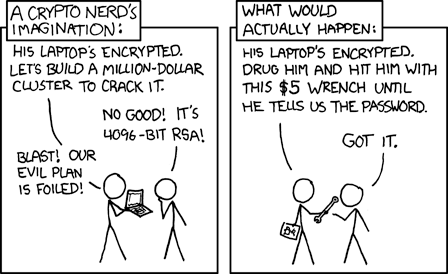
Nobody needs to know how much Crypto you actually hold. Not everyone online wants to be your friend, there are quite a few bad actors out there looking for their in. No amount of internet points or clout is worth potentially sharing too much info and putting a target on your back. There's a reason I created a secondary persona for Crypto writing, I don't want anyone to be able to trace this account back to my actual real life information.
3. Refresh that Address
This runs down the same vein as the above but with an additional benefit. By creating a new address for each farm/contract interaction you use you're #1 adding another layer of identity protection and #2 potentially protecting yourself from any exploits that may occur related to permissions through various farms.
4. Revoke Approvals on Frequently Used Addresses
This is something I admittedly can be pretty poor at doing but doing it could be worth its weight in gold. While doing the research for my piece on The 5 Biggest Hacks/Exploits in DeFi, one exploit that didn't quite make the list caught my attention.
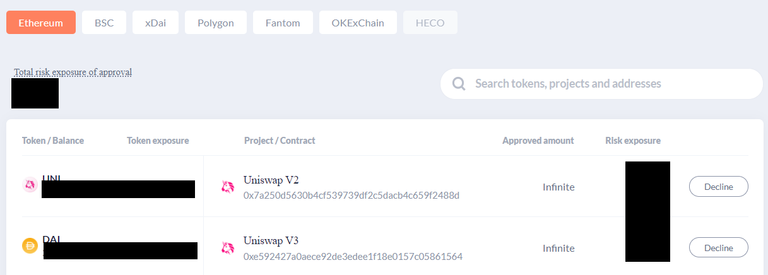
Furucombo lost $14M to some faulty code that allowed a hacker to exploit users who had given the protocol "infinite approval". Something I forget I even do 90% of the time, but if the exploit for Furucombo taught me anything - it was to remember to always revoke approval for infinite transactions on some of my more used addresses. Debank is a great website to do so - I posted a picture above of what the "Approval" area looks like on their website. It includes how much you could be potentially risking on each exchange/for each token as well as total risk.
5. Secure Passwords/Use a Password Manager
According to a recent study by NordPass, the most commonly used password in the world was "123456". For the security freaks out there this is more than a little triggering. Passwords that consist only of numbers or a single word are more easily guessed, usually the more words in a password the better. According to some security experts the best passwords consist of either sentences with numbers or random mixes of digits, numbers and special symbols.
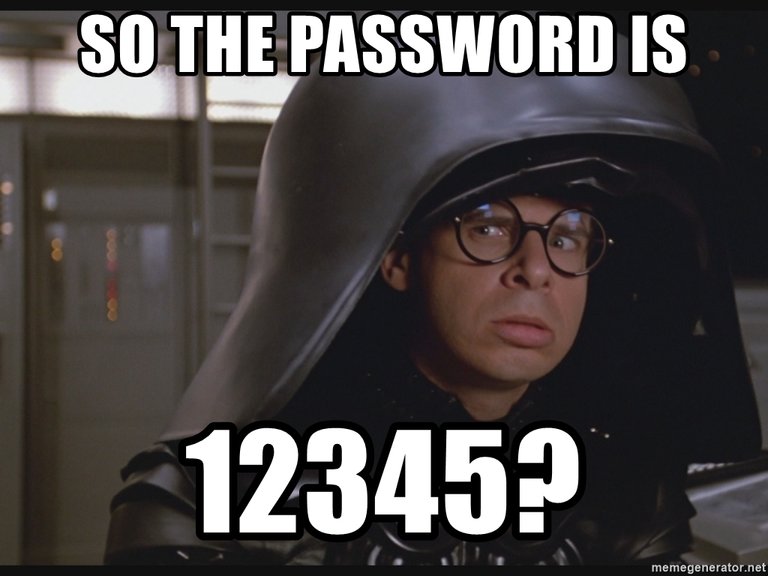
Personally I like to use password generators for a portion of my passwords. There's some pretty good ones out there like DashLane and LastPass. It's also best to avoid using the same password for multiple locations, data is leaked all the time and hackers will take that data and try it at a variety of websites until the password works.
6. Avoid Windows
Windows is like the BTC of OS systems, just with far less security. Currently they hold an almost 80% dominance of all desktop OS systems as of July of 2020, this dominance is both good and bad. Good in the way that if you run a desktop with Windows, everything will likely be catered to you. Bad in the way that if you run a desktop with Windows, all viruses will also likely be catered to you.
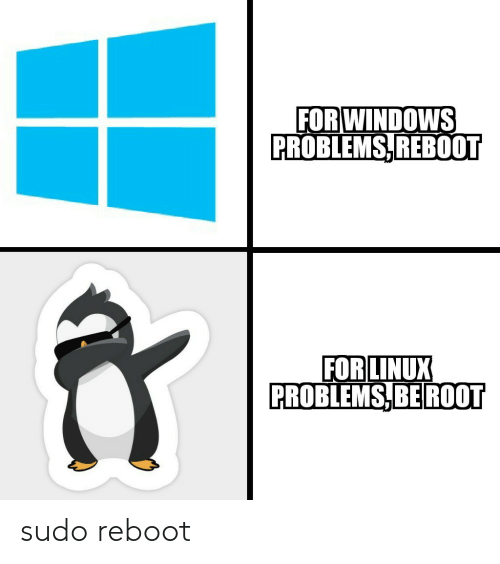
Linux is a great alternative, not only because it's significantly less used but also how programs are installed. With Windows you install a executable files and cannot necessarily see each line of code contained. With Linux programs are installed via a command-line interface from a public repository where viruses are more easily spotted by the community. If you're not convinced there's a pretty good writeup by a Linux homer here.
7. Use Multiple Addresses to Spread Risk
If you're deeply into DeFi or Crypto in general, using multiple addresses is another essential to keeping your funds safe. They don't necessarily need to be in separate wallet providers (although that won't hurt) but having separate addresses setup can help lessen the blow if your favorite exchange or yield farming platform gets hit.
8. Do Your Own Research
This is definitely become a meme in Crypto as a whole but it's an absolute must for long-term success. The emphasis here is on doing your own research. Watching a video of someone else's opinion or reading someone else's opinion is not doing your own research. One of the greatest assets to have in Crypto is learning to read the smart contracts/whitepapers and accurately identify a fishy project. So even though it's 100% a meme, please take it seriously and exercise it liberally.
Well I hope you enjoyed reading, if you did don't forget to drop a follow/like so I know to keep taking the time to write! Hope you have a great day. Thanks!
Follow me on Twitter - https://twitter.com/AbsoluteUknit
And here's a solid Crypto Trading Bot I use - DeltaBadger, 10% off through this link.
Posted Using LeoFinance Beta
Congratulations @absolute.unit! You have completed the following achievement on the Hive blockchain and have been rewarded with new badge(s) :
Your next target is to reach 200 upvotes.
You can view your badges on your board and compare yourself to others in the Ranking
If you no longer want to receive notifications, reply to this comment with the word
STOP